
2019 | Housing Initiative
Transit Oriented Los Angeles
Project Description
This project examines how increased housing capacity near LA Metro stations can lead to positive outcomes, such as higher transit ridership, increased housing supply, and reduced environmental impacts. The project first provides a literature review on the existing relationships between density and transit ridership, housing, neighborhood amenities, and sustainability. Then, the report details seven station-area case studies that represent a variety of geographies, land use and urban form, transit line, demographics, and displacement risk to provide a well-rounded sample of existing conditions. Within each case study, the same series of new housing scenarios are applied, including allowing more multifamily zoning at different levels, allowing for mixed-use zoning, tying density increases to the distance from the station, and changing other barriers to multifamily development such as reducing the lot width, lot area, or parking requirements. The goal for these projections is to estimate the number of additional housing units that could be added to the station areas, the effect on population change, and the total estimate of the number of affordable housing units created.
Publications
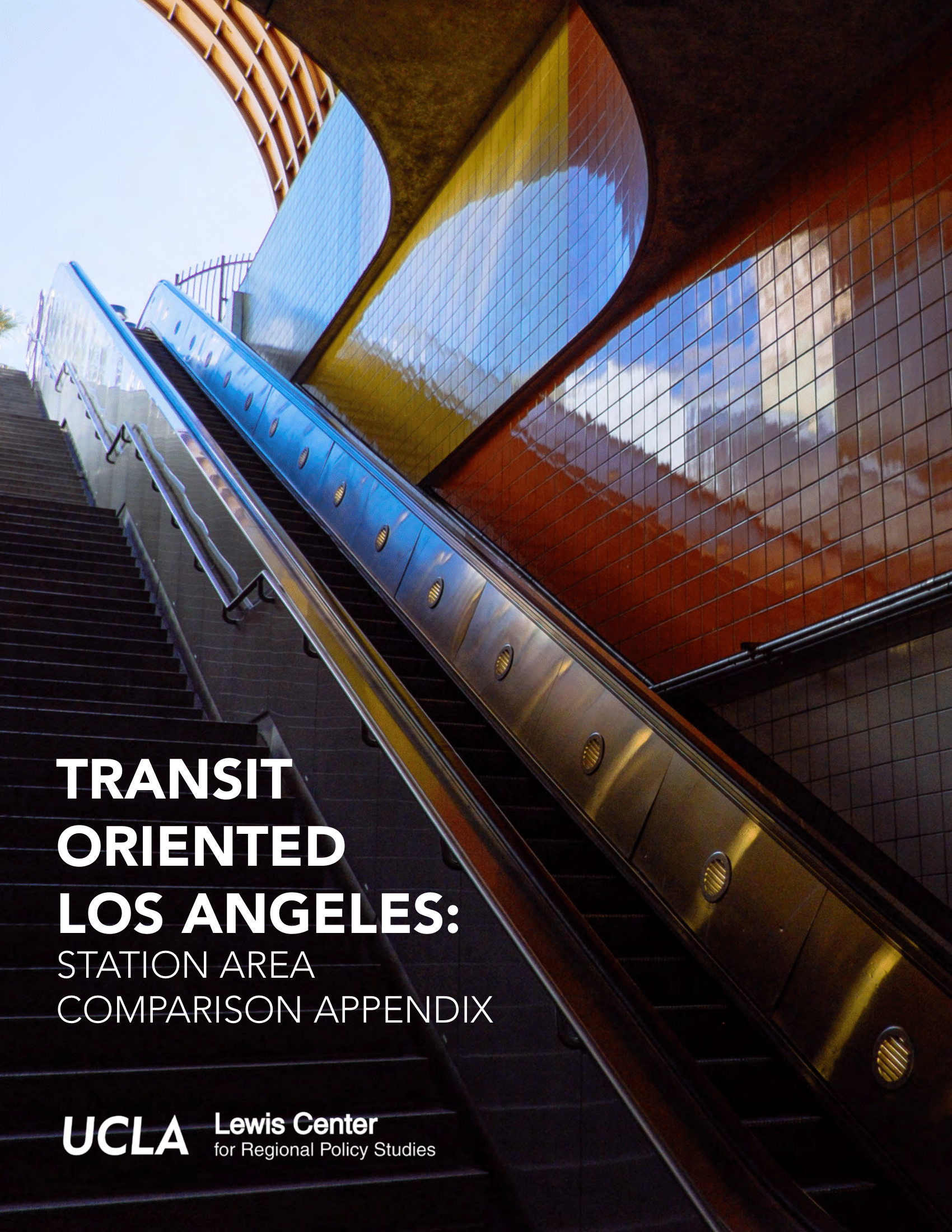

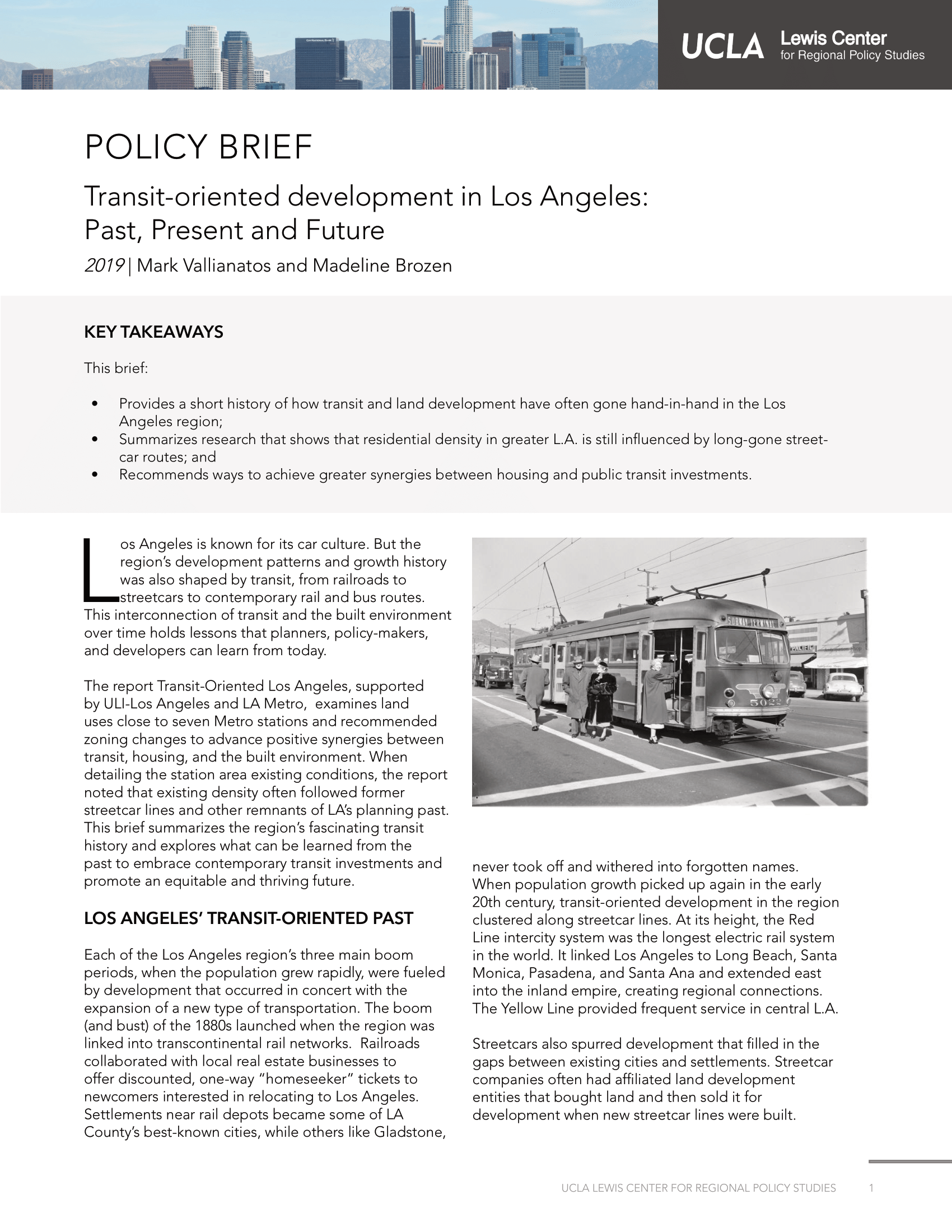

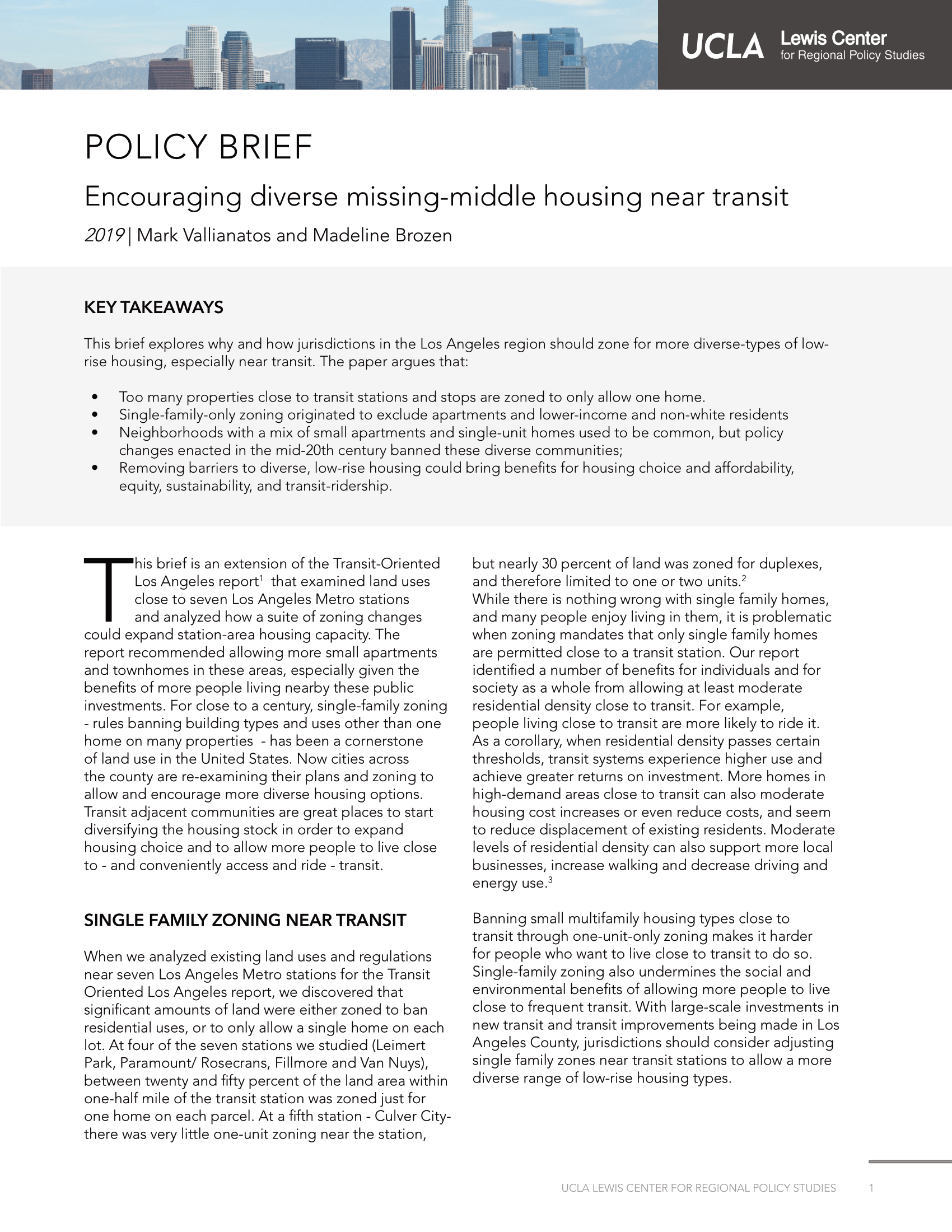

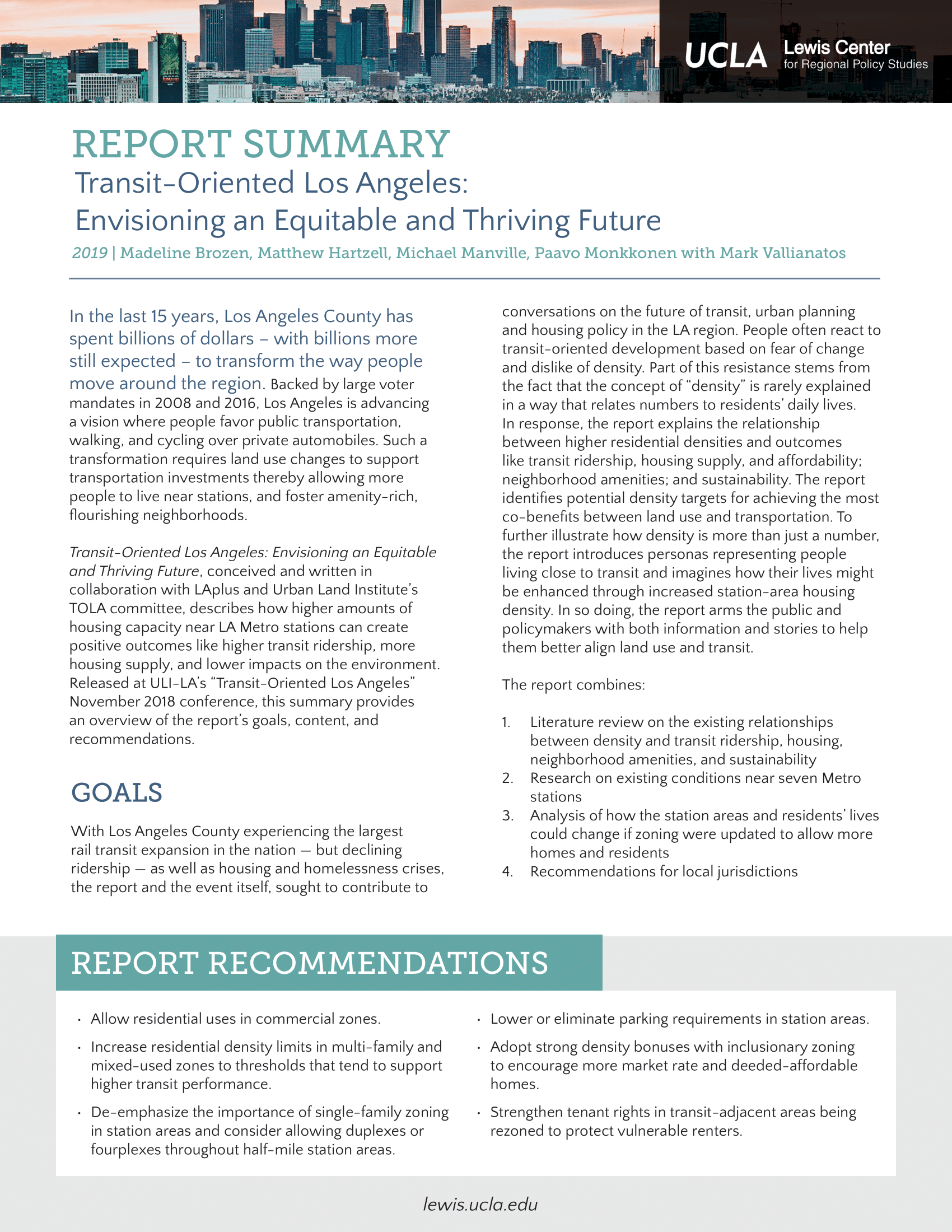

Brief • 2019
Transit-Oriented Los Angeles: Envisioning an Equitable and Thriving Future Summary
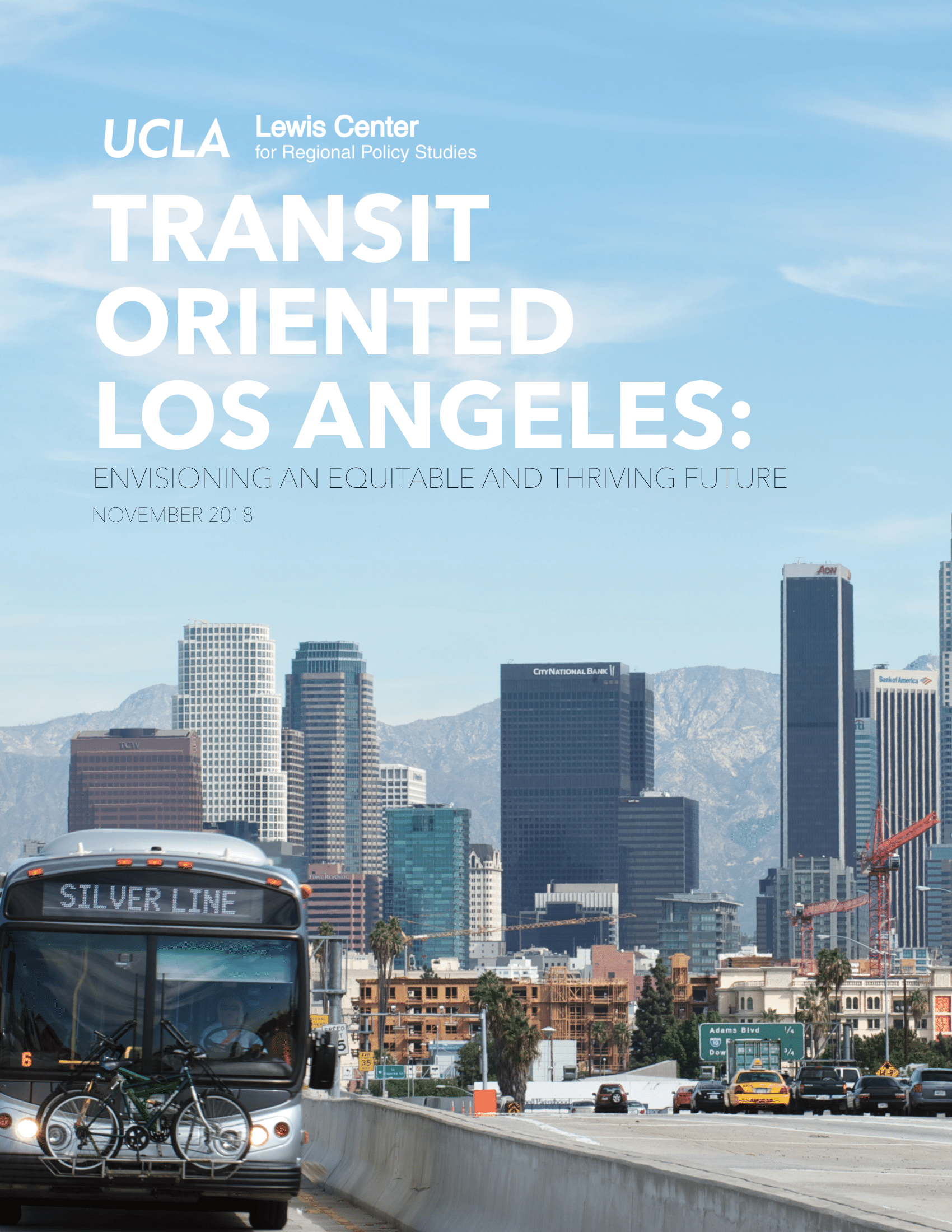

Status
Complete
Funding Source
Los Angeles County Metropolitan Transportation Authority, Urban Land Institute
Research Team
Madeline Brozen, Paavo Monkkonen, Mark Vallianatos
PI Contact

Michael Manville
Professor
